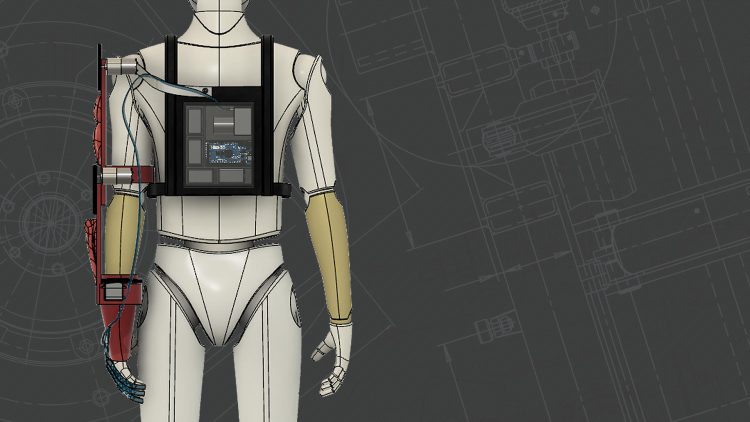Nelson Hidalgo knew he wanted to study biomedical engineering when he enrolled at Miami Dade College. When he was given the chance to work on a robotic arm to assist a patient who’d lost use of his left arm due to a stroke, he jumped at the chance.
Since then, Hidalgo’s vision for an active orthotic device – a wearable exoskeleton structure that assists movement externally – continued to grow, nurtured by the Makers Lab at MDC’s Wolfson Campus. Now, taking it a step closer to fruition, the device is part of a collaboration with the Global CoCreation Lab (GCL) at Massachusetts Institute of Technology (MIT), Hidalgo’s transfer school.
MDC’s Makers Lab, a work space open to the MDC community, provided supplies and support for his research, which became one of his favorite experiences at the College.
“Around the time he and a team of MDC students were working on the device, the Makers Lab started talking with the GCL at MIT about a possible partnership,” said Makers Lab Manager Ralph Provisero. “Nelson and the Makers Lab have now been working on the device with an MIT post-grad fellow and some others here in the medical community.”
Hidalgo is attending MIT this fall but will continue his connection to MDC as the College’s student representative at GCL The exoskeleton project is now known as “Kinetico: Upper-Limb Orthotic Device for Rehabilitation and Assistance,” and it will also assist patients with spinal cord injuries.
The latest virtual models of the project benefitted from Hidalgo’s hands-on research with the stroke victim, and will use the data to fine-tune muscle-sensing and brain interfacing technology for natural mobility. Hidalgo hopes they can begin building a lightweight, working prototype from 3D-printed plastics soon.
––Abel Folgar
